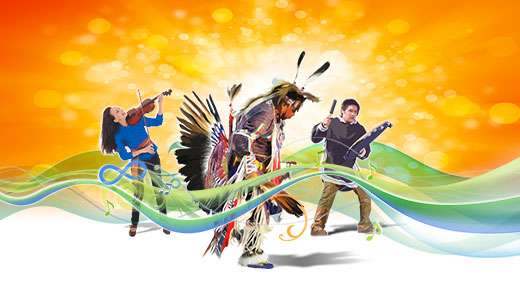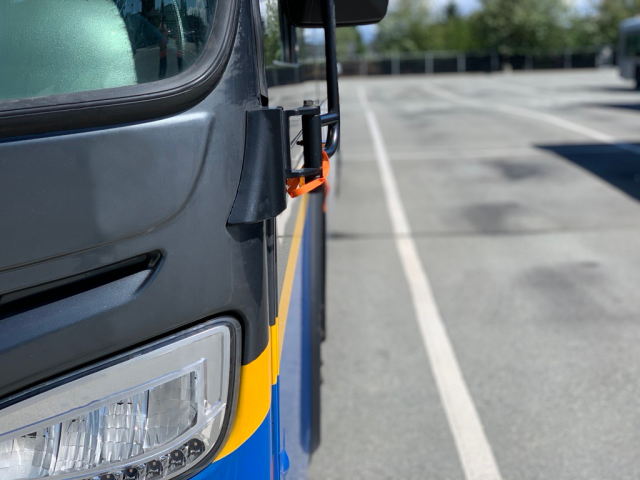TransLink Honours: National Indigenous History Month
TransLink Honours: National Indigenous History Month

June is National Indigenous History Month, with June 21 being National Indigenous Peoples Day.
Here at TransLink, we acknowledge, respect, and celebrate the Indigenous Nations on whose territories we are fortunate to live, work, operate, and serve on. We recognize that in planning and managing the region’s transportation system we have a role to play in supporting reconciliation with Indigenous peoples.
We’re also proud to employ some amazing Indigenous staff like Dwayne, whose voice you may recall from previous years, gracing SkyTrains around the region. And we’ve proudly moved Metro Vancouverites to and from National Indigenous Peoples Day events in the past – and are excited to do so again in the near future.
Through the month of June, you’ll see ribbons tied to driver-side mirrors on our buses to show solidarity to victims and families of residential school survivors and those who have left us. We’re also encouraging employees to wear orange clothing or accessories while on the job, so you may see your favourite Transit Operator donning an orange shirt in support. Transit Security Officers and Transit Supervisors may wear orange shirts under their uniforms too.
We will also pay special tribute on National Indigenous Peoples Day, so stay tuned for more details.
Now more than ever, this is a time to focus on the history, heritage and diversity of First Nations, Inuit, and Métis peoples.
News of the discovery of remains of more than 215 Indigenous children buried at Tk’emlúps te Secwe̓ pemc First Nation in Kamloops, BC, the site of what was once Canada’s largest residential school has been heartbreaking.
As an enterprise, we’re committed to learning and understanding the current and past realities of Indigenous Peoples. This discovery is a stark reminder that we need to continue to do more, to listen, and to learn. We cannot hide from this dark part of Canadian history and we must acknowledge that a lot of work needs to be done to heal. This history continues to have a profound effect on Indigenous families and communities through direct and intergenerational trauma.
The news on residential school has been difficult and upsetting. If you, or someone you know is struggling, know that you are not alone, and support is available:
- National Indian Residential School Crisis Line (1-866-925-4419)
- In BC, a toll-free First Nations and Indigenous Crisis Line (1-800-588-8717)
- Emotional, cultural and professional support services are also available to survivors and their families through the Indian Residential Schools Resolution Health Support Program






